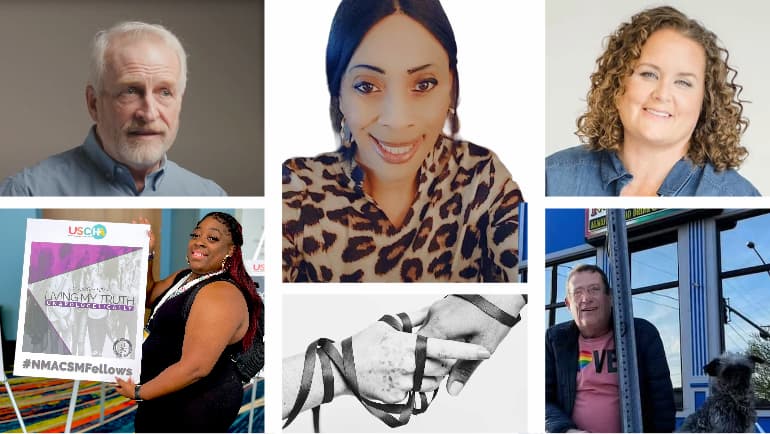QUAD CITIES — Kerry Wells has been through a lifetime of health challenges since she was diagnosed with HIV/AIDS seven years ago.
She overcame double pneumonia, two induced comas, three rounds on a respirator, dangerous weight loss, and a T-cell count of only eight. Today, she’s a thriving drag performer, Lyrica Simone, and undetectable.
Wells is also among four Quad Citians who share their story of living with HIV/AIDS in a documentary that will debut this Thursday. Produced by The Project of the Quad Cities, “We’re Still Here’ has the potential to transform lives, says Wells.
She says the new film “means the world to me.”
“It’s not only informative, it’s also entertaining,” Wells says. “And it’s empowering. I see it as an opportunity to help others, because there are a lot of people who may identify with my story.”
The documentary is made even more timely by the fact that one in six people with HIV don’t know they have it, The Project said in a press release. In addition, statistics from the Centers for Disease Control show the majority of new HIV cases are among young aults.
The Project’s new documentary preserves history of HIV/AIDS epidemic
All in all, nine people are featured in TPQC’s new documentary. They include Destiny Smith, an online HIV awareness activist and a young mother of two whose experience with HIV/AIDS is, like Wells’ experience, recent.
They also include nurses, doctors and other care providers deeply involved from the height of the epidemic in the late 1980s, when AIDS/HIV spread beyond its initial outbreak among gay men in Los Angeles to become the leading cause of death for adults ages 25 to 44.
Also included: Kent Douglas and Bobby Stansberry, two gay men who experienced the initial outbreak of AIDS before effective treatment was known.
Stansberry, owner of Mary’s on 2nd LGBTQ+ nightclub in Davenport, traverses from tears to laughter as he recounts what it was like to be a young gay man in the era of HIV/AIDS.
“I can show you pictures where there were 14 of us in the picture, and only two of us are alive today,” he says in a preview of the documentary released in early June. “A lot of people showed up to take care of us, but we took care of each other for the most part, through all of this,” he says in the film.
By reliving the pain, Wells and Stevens hope to help others
“We’re Still Here” is the brainchild and project of Sarah Stevens, TPQC’s head of community impact. Stevens created the film after realizing how little record existed of the early days of the HIV/AIDS epidemic in the 1980s, which was when The Project first started.
“There wasn’t an interview that I walked away from that I didn’t cry,” says Stevens. “I could feel the weight of what it was like for them to relive these moments. So it’s an extremely brave and courageous thing to be able to (vulnerably) share this part of themselves that, to this day, carries so much trauma.”
Wells says reliving the pain for the film is worth it. She recalls how fearful she was to seek treatment during the months before her diagnosis. Lack of insurance, and the way she likely contracted the virus (through unprotected sex), left her feeling too ashamed to seek help.
She struggled through daily chills and fevers, dropping down to 106 pounds on her 6’1” frame. When she finally walked into the emergency room, she fainted into the arms of nurses and had to be put into an induced coma to survive.
She doesn’t want others to let stigma keep them away from the help that is there for them.
“If I’m able to share my story, and if I’m able to help one single person to get over the stigma that comes with the disease, and to be included, then my job is done.”
The free showing of the documentary is 6:30 to 7:30 p.m. Thursday at Figge Art Museum, 225 W.2nd St., Davenport.
(cover photo features, clockwise from top left: Kent Douglas, Kerry Wells, Sarah Stevens, Bobby Stansberry with his dog Charlie, the “We’re Still Here” documentary logo, and Destiny Smith. An earlier version of this article was originally published in the July 2023 print edition of The Real Mainstream)






